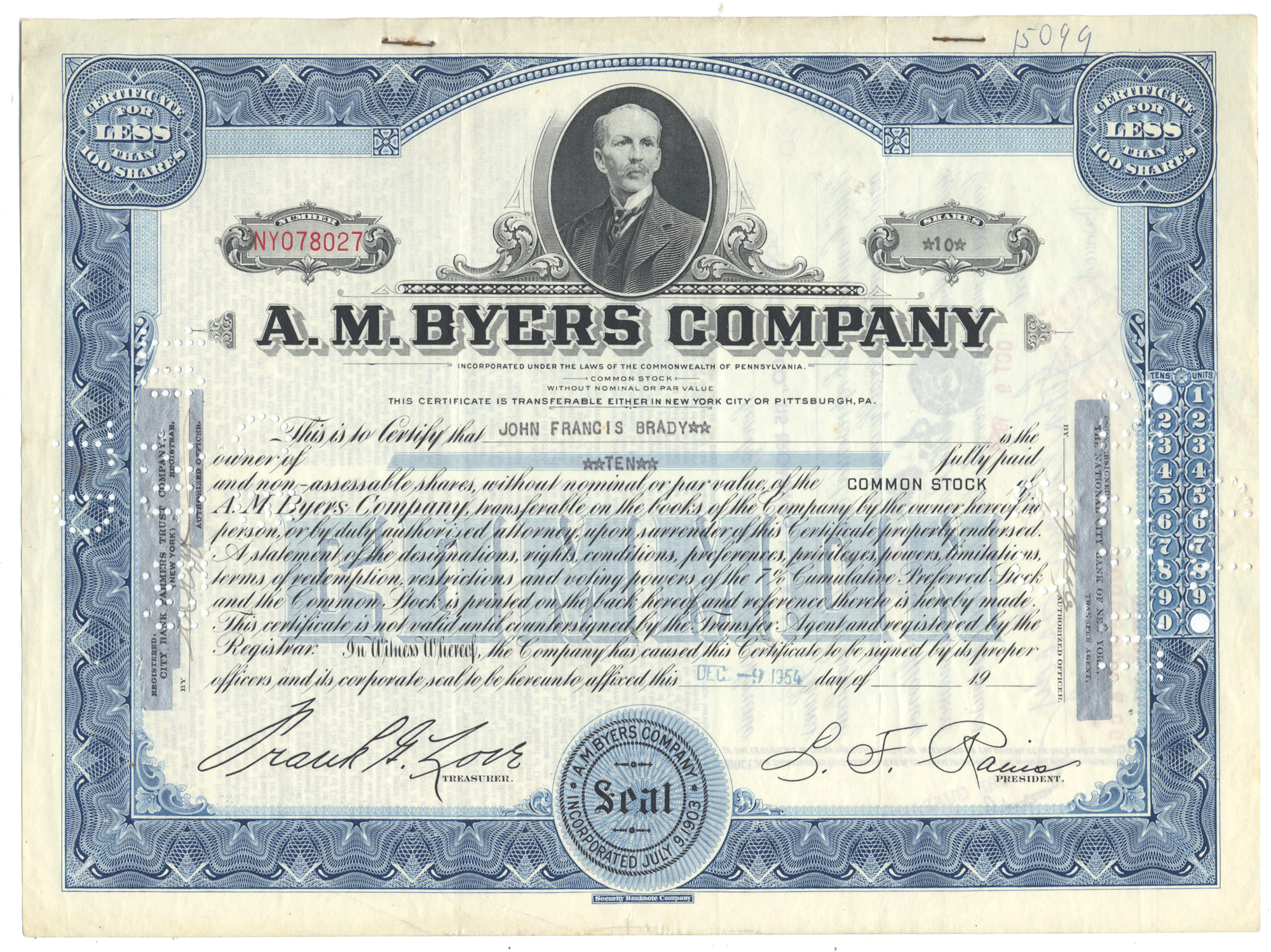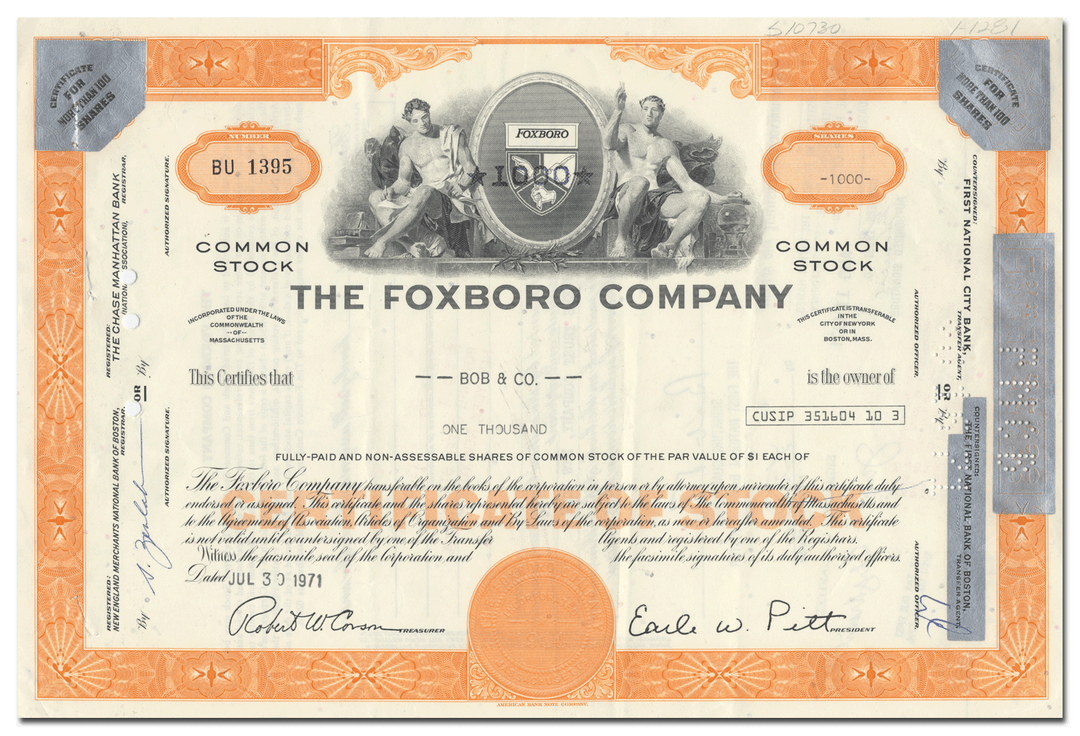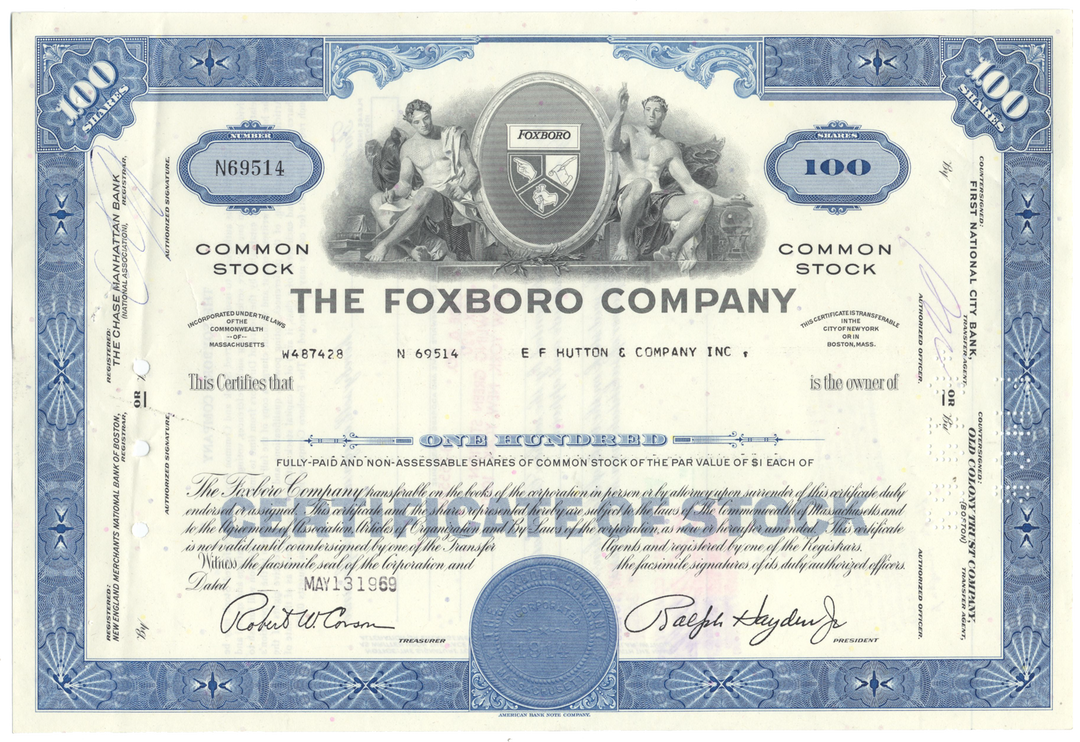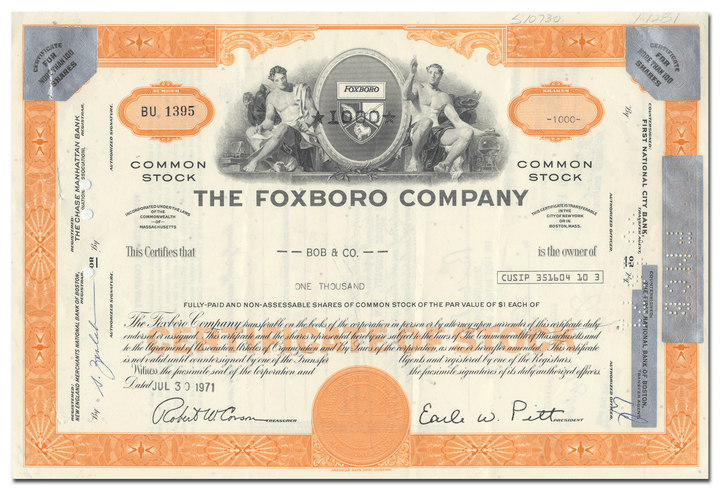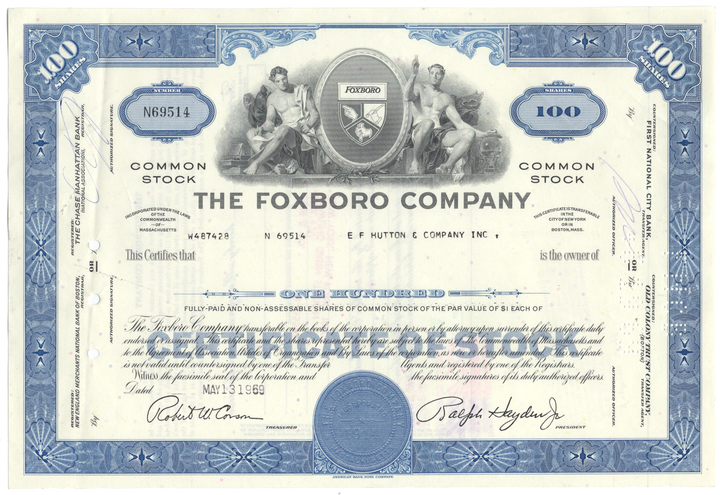Foxboro Company
- Guaranteed authentic document
- Orders over $75 ship FREE to U. S. addresses
Product Details
CompanyFoxboro Company
Certificate Type
Common Stock
Date Issued
1960's and 1970's
Canceled
Yes
Printer
American Bank Note Company
Signatures
Machine printed
Approximate Size
12" (w) x 8" (h)
Images
Representative of the piece you will receive
Guaranteed Authentic
Yes
Additional Details
NA
Historical Context

Foxboro was founded by the Bristol brothers. Edgar Hiel Bristol and Bennet Beri Bristol were heirs to a company run by their father and based in Waterbury, Connecticut. They withdrew from the family business, though, and set up the Industrial Instrument Company in 1908. As part of their effort to launch a company capable of producing instrument controls, the Bristol brothers purchased two companies in this industry: the Standard Gauge Manufacturing Company, of Syracuse, New York; and the Standard Electric Time Company, a clock manufacturer in Waterbury.
The Bristols then set out to find a suitable site for their new business. They settled on Foxboro, Massachusetts, a town of 3,500 people that had an unused set of 12 sturdy brick industrial buildings. The fledgling company bought these Neponset Avenue buildings, originally built in 1894 by the Van Choate Electric Company, in the summer of 1908. Industrial Instrument began the process of transferring the operations of the Standard Gauge company from Syracuse to Massachusetts. In December 1908 the first set of Standard Gauge employees arrived from New York, and much of the firm's equipment later followed in wooden crates.
Industrial Equipment also bought another firm, the Shepherd Plating and Finishing Company, based in Waterbury. It moved that company to Foxboro as well. By the end of the year, the company had 53 employees who earned about 13 cents an hour turning out gauges for use in steam boilers, refrigeration units, and automobiles.
In 1909 Industrial Instrument bought the American Instrument Company of Newark, New Jersey, a subdivision of the Western Electric Company. This company specialized in precision instruments, and Industrial benefitted from the purchase of its lathes, presses, and automatic screw machines. In March 1910 the company closed its Waterbury head office after the Bristols determined that its distance from the Foxboro plant made management of the company difficult.
Throughout the second decade of the new century, Industrial Instrument struggled to stay afloat. The company even rented out extra space in its plant to other manufacturers in an effort to raise revenue. Industrial marketed low pressure automobile gauges, high pressure gauges, and temperature monitors. By 1911 the company had introduced the first multiple-pen recorder and sold its first long-distance recording psychrometer. As time passed, Industrial began to market flow instruments and devices to measure differential pressure. The company's primary clients for these instruments were gas companies, utilities, and the process industries.
In 1912 Industrial Instrument sold its Standard Time division back to its original owner after determining that its operations did not fit in well with the rest of its activities. The company also established branch offices in major industrial cities across the United States, including New York, Chicago, and Cleveland, and kept in touch with customers through a publication called The Foxboro Recorder.
In 1912 Industrial Instrument adopted a trademark featuring Foxboro, the name of the company's hometown, in order to clear up confusion about the company's identity. On January 1, 1914, Industrial Instrument also changed its name to the Foxboro Company. The following year, the company mounted an exhibition at the World's Fair in San Francisco in an effort to market its goods to a wider variety of national manufacturers.
Related Collections
Additional Information
Certificates carry no value on any of today's financial indexes and no transfer of ownership is implied. All items offered are collectible in nature only. So, you can frame them, but you can't cash them in!
All of our pieces are original - we do not sell reproductions. If you ever find out that one of our pieces is not authentic, you may return it for a full refund of the purchase price and any associated shipping charges.




